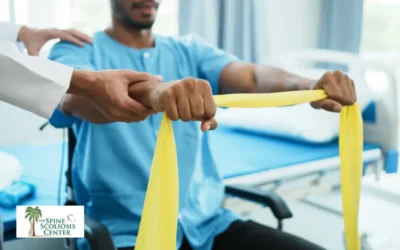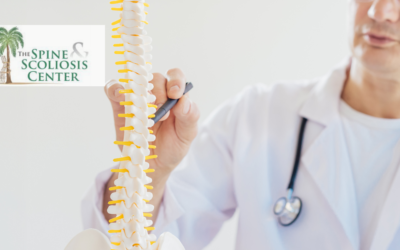Back pain has affected most people at some point in their lives. The pain may range from mild discomfort to debilitating. If you are often afflicted with striking pain along your spine, it may be difficult to tell whether the pain is a minor issue or if it’s a real problem and requires medical attention. While occasional mild to moderate back pain is normal and common, especially with the amount of sitting we do in our modern lives, severe or chronic back pain may call for treatment. Read on to learn more about common symptoms of back pain and when you should consult with a doctor.
How To Tell If You Have Specific Back Pain
- Fever or chills: There is the common misconception that back pain is a condition separate from other illnesses. However, fever or chills along with persistent back pain could be indicative of a spinal infection.
- Pain following physical trauma: Generally speaking, a physical injury that involves the spine will result in vertebral breakage or fractures. Even minor spinal injuries can harm the spine if the victim happens to be osteoporotic. The victim will experience acute localized pain and needs to consult a specialist for analysis and treatment.
- Consistent, mild back pain: Poor spinal care often causes mild back pain. General spinal health can be impacted by aggressive weightlifting, dehydration, impaired posture, poor eating habits, etc.
If your back pain is paired with other severe symptoms like blood in the stool, unexpected weight loss, numbness, or loss of bladder control, you should immediately contact your doctor.
General Back Pain Remedies
You should always consult with your doctor if you need recommendations for spine treatment. Below are some natural ways to help relieve your general back pain that you can perform along with any prescribed treatment.
- Exercise: Moving more throughout the day will decrease the amount of pressure you exert on your back. Try taking more light walks or stretching more often throughout your workday if you work a desk job. Also, always remember to stretch thoroughly before and after any workout. You can alleviate aching pain through regular stretching.
- Release endorphins: When you get your blood pumping, you’re also releasing endorphins. Some holistic ways to release endorphins and get your blood flowing include massage therapy, meditation, breathing exercises, and acupuncture.
- Maintain proper posture: Poor posture exerts extra pressure on your back and makes degenerated discs more painful. Preserve your posture by keeping your shoulders relaxed, allowing your arms to hang naturally down the sides of the body, and keeping the feet about shoulder-width apart.
- Apply ice and heat: A natural way to reduce inflammation and pain is through icing. Heat also helps blood circulate, so try to apply low levels of heat via a hot bath, a hot shower, or with a heating pad or towel.
Contact Us Today
If you experience severe back pain, you may need to explore further treatment options. Call The Spine and Scoliosis Center to schedule an appointment




0 Comments